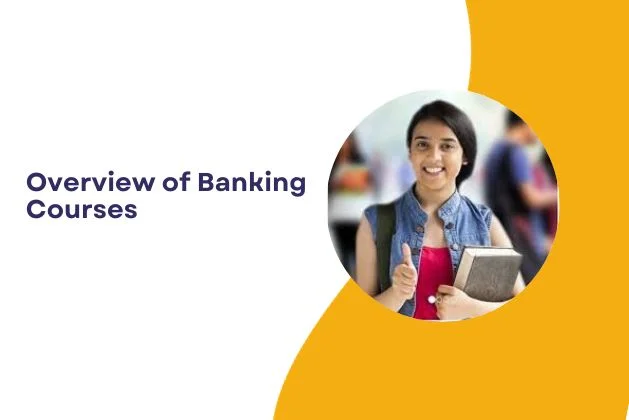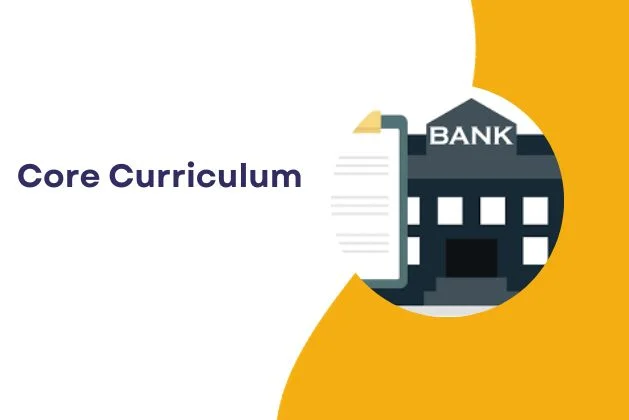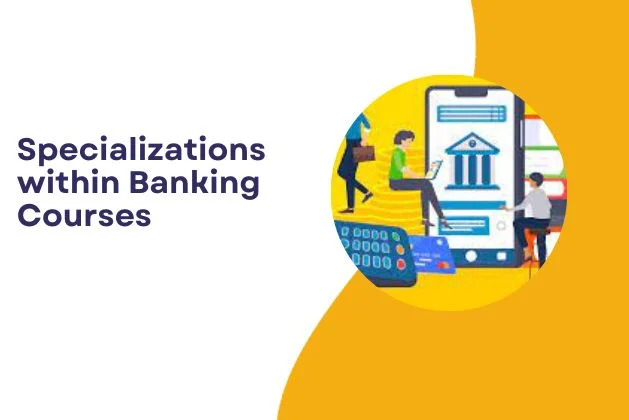Table of Contents
ToggleIntroduction
The world of finance is a vast and ever-changing ecosystem, constantly influenced by various economic factors.
At the core of this complex system lies the banking sector, which plays a crucial role in driving economic growth and stability.
It serves as the backbone of financial transactions, providing individuals and businesses with essential services such as loans, investments, and payment processing.
To navigate this intricate industry successfully, individuals must possess a specialized understanding of its inner workings. This is where banking courses come into play.
These educational programs are specifically designed to equip aspiring professionals with the necessary knowledge and skills to thrive in the fast-paced world of banking.
Through rigorous theoretical coursework and practical training, banking courses provide students with a comprehensive understanding of financial principles, regulations, and practices.
They cover a broad range of topics, including accounting, risk management, lending procedures, investment strategies, and customer service.
By delving deep into these subjects, students gain a solid foundation that prepares them for the challenges of working in the banking sector.
Overview of Banking Courses

Banking courses are meticulously crafted to provide individuals with a comprehensive understanding of the intricate and multifaceted world of banking.
These courses offer a wealth of knowledge and skills that are essential for thriving in the dynamic and ever-evolving field of banking.
They encompass a diverse range of topics, delving into the complexities of banking operations, financial management, risk analysis, and regulatory compliance.
Through these courses, students are exposed to a broad spectrum of concepts and practices that are crucial for success in the banking industry.
They learn about the various functions and processes involved in day-to-day banking operations, such as deposit and loan management, transaction processing, and customer service.
Moreover, these courses also delve into the intricacies of financial management within a banking context.
Students gain an in-depth understanding of how banks handle their assets and liabilities, manage liquidity, and make strategic financial decisions to maintain stability and profitability.
Core Curriculum

The curriculum of banking courses is carefully designed and organized to provide students with a comprehensive and in-depth understanding of the complex world of banking.
These courses cover a wide range of topics, from the history and evolution of banking to the latest trends and developments in the industry.
The goal is to equip students with a deep understanding of the various functions, operations, and regulations within the banking sector.
The core subjects included in these courses are carefully chosen to cover all aspects of banking, ensuring that students have a well-rounded education.
This includes topics such as financial markets, risk management, investment strategies, and financial analysis.
Through these subjects, students will gain a thorough understanding of how banks operate and make decisions in today’s ever-changing financial landscape.
In addition to theoretical knowledge, students also gain practical skills through case studies, simulations, and interactive exercises.
This hands-on approach allows them to apply their knowledge in real-world scenarios and prepares them for the challenges they may face in their future careers.
- Banking Principles and Practices
- Financial Accounting and Analysis
- Credit Management and Analysis
- Investment Banking
- Risk Management
- Regulatory Compliance and Banking Laws
Specializations within Banking Courses

Many courses offer specializations to cater to specific areas within banking. These may include:
- Retail Banking
- Corporate Banking
- Investment Banking
- Islamic Banking
- Digital Banking and Fintech
Importance of Financial Technology (Fintech)

In today’s fast-paced world where technological advancements are constantly being made, it has become crucial for the banking sector to keep up with these changes.
As a result, modern banking courses have evolved to include comprehensive modules on Fintech, or financial technology.
This specialized course material delves into various aspects of Fintech, such as blockchain technology, digital currencies, and online banking platforms.
By covering these topics, banking professionals are equipped with the necessary knowledge and skills to adapt to the ever-evolving digital landscape in the banking industry.
The module on blockchain technology provides a deep understanding of its decentralized and secure nature, which is transforming traditional banking processes by eliminating intermediaries and streamlining transactions.
The emergence of digital currencies, such as Bitcoin and Ethereum, has also gained significant attention in recent years due to their potential for revolutionizing traditional forms of currency exchange.
Through this module, professionals gain insight into the advantages and challenges associated with this emerging form of currency.
Practical Learning and Case Studies
Banking courses frequently utilize dynamic, real-life examples in the form of case studies, simulations, and scenarios to provide a hands-on learning experience for participants.
By immersing them in practical situations, this approach allows students to actively apply their theoretical knowledge and hone their problem-solving abilities.
Through these immersive exercises, participants are able to gain a deeper understanding of the complexities and challenges of the banking industry, preparing them for real-world scenarios and equipping them with invaluable skills for success in their careers.
Professional Certifications
In the world of banking, there are numerous courses available that offer the opportunity to gain prestigious professional certifications.
These certifications, such as the highly regarded Certified Financial Analyst (CFA) designation, the esteemed Chartered Banker accreditation, and the sought-after Risk Management Professional (RMP) certification, have become synonymous with excellence and expertise in the industry.
With their rigorous curriculum and rigorous exams, these certifications are highly recognized and respected by employers around the world.
Not only do these credentials demonstrate a high level of knowledge and skill in their respective fields, but they also hold significant value for individuals looking to advance their careers in banking.
By completing one or more of these certifications, participants can add a valuable asset to their professional profile that sets them apart from others in the industry.
Employers often view these certifications as a sign of dedication and commitment to ongoing learning and development.
Duration and Format
When it comes to banking courses, there is no one-size-fits-all approach.
These courses can differ greatly in terms of their duration and format, catering to the diverse needs and schedules of individuals pursuing a career in the banking industry.
Firstly, let’s consider the duration of these courses. While some may be short-term and intense, typically lasting for a few weeks or months, others may span over an extended period of time, even up to several years.
The length of the course often depends on its level of complexity and the depth of knowledge it aims to impart.
In addition to duration, the format of banking courses also varies significantly. Some may follow a traditional approach with in-person classes held at a physical location such as a university or training center.
This allows students to engage in face-to-face interactions with their instructors and peers, fostering a collaborative learning environment.
Career Opportunities
Enrolling in and successfully completing a comprehensive banking course not only provides individuals with valuable knowledge and skills, but also opens up a vast array of career options for them to explore.
Upon graduation, individuals are equipped with the necessary expertise and qualifications to pursue an assortment of roles within the banking industry.
These opportunities include positions such as: financial analyst, loan officer, investment banker, financial advisor, bank manager, credit analyst, mortgage specialist, and many more.
Each of these roles offers unique responsibilities and challenges that cater to different interests and strengths within the field of banking.
With this diverse range of potential career paths available to them, graduates have the freedom to choose a role that aligns with their passions and goals.
Moreover, the specialized training and education provided by the banking course sets individuals apart from their peers and increases their chances for success in their chosen career path.
- Bank Manager
- Financial Analyst
- Risk Manager
- Investment Banker
- Credit Analyst
- Compliance Officer
Global Perspective
Enrolling in banking courses can offer a wealth of knowledge and insights into the complex and ever-evolving world of banking.
These courses not only cover the fundamentals of banking practices, but also provide a comprehensive understanding of the regulations and trends shaping the industry.
One of the most valuable aspects of these courses is their global perspective, which takes into account the interconnected nature of the modern world.
As professionals in this field may find themselves working in diverse international settings, having a broad understanding of banking practices across different countries and cultures becomes increasingly crucial.
By delving into the intricacies and nuances of international banking, these courses can equip individuals with invaluable skills and knowledge to navigate the complexities of global finance with confidence and expertise.
Also Read: What is the Work of CS
Continuous Learning and Updates
The banking industry is a constantly evolving landscape, with new trends, regulatory changes, and emerging technologies emerging at a rapid pace.
To keep up with the ever-changing demands of the industry, courses are thoughtfully designed to instill a culture of continuous learning within participants.
This means that even after completing the course, individuals are encouraged to continue their education and stay updated on any developments in the field.
As the financial sector continues to evolve and adapt to new challenges and opportunities, it is crucial for professionals in the banking industry to stay informed and knowledgeable about current trends and advancements.
Through these Banking courses, participants are not only equipped with essential skills and knowledge but also encouraged to maintain a mindset of growth and improvement.
These courses go beyond simply providing information; they aim to cultivate a deep understanding of the banking industry’s inner workings.
By delving into topics such as market shifts, regulatory updates, and cutting-edge technologies, participants gain a comprehensive understanding of how these factors impact the industry as a whole.
Conclusion
When one decides to embark on a banking course, they are not simply taking a mere step towards gaining knowledge.
Rather, it is an immersive journey that delves into the very core of the financial world.
These courses offer a diverse and intricate tapestry of theoretical and practical insights, equipping individuals with the necessary tools to navigate the complex landscape of banking with poise and proficiency.
Whether one is an experienced professional or a newcomer to the industry, a banking course serves as a crucial key to unlocking new opportunities and attaining success in the ever-evolving realm of finance.
Frequently Asked Questions (FAQs)
A banking course is a structured educational program that provides individuals with comprehensive knowledge and skills related to the banking sector. It covers various aspects, including banking operations, financial management, risk analysis, and regulatory compliance.
Core subjects typically include Banking Principles and Practices, Financial Accounting and Analysis, Credit Management, Investment Banking, Risk Management, and Regulatory Compliance and Banking Laws.
Yes, many banking courses offer specializations to cater to specific areas within the banking industry. Examples include Retail Banking, Corporate Banking, Investment Banking, Islamic Banking, and Digital Banking.
Fintech is increasingly important in modern banking courses. It covers topics such as blockchain, digital currencies, and online banking platforms, preparing participants for the digital transformation in the banking industry.
Yes, banking courses often incorporate practical learning through case studies, simulations, and real-world scenarios. This hands-on approach helps participants apply theoretical knowledge to practical situations.
Yes, many banking courses are affiliated with professional certifications such as Certified Financial Analyst (CFA), Chartered Banker, or Risk Management Professional (RMP), which can enhance career prospects.
Graduates of banking courses can pursue various roles, including Bank Manager, Financial Analyst, Risk Manager, Investment Banker, Credit Analyst, and Compliance Officer.
The duration of banking courses varies. Some are short-term, intensive programs, while others may span several months or even years, depending on the depth and breadth of the curriculum.
Banking courses may be offered in various formats, including in-person classes, online modules, or a combination of both. This flexibility caters to the diverse needs of participants, including working professionals.
Banking courses often provide a global perspective by covering international banking practices, regulations, and trends. This is valuable in an interconnected world where banking professionals may work in diverse international settings.



